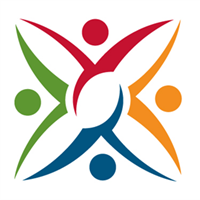Incorporating the Principles for Responsible and Impactful Missionary Work
“Service is the sign of true love. Those who love know how to serve others. We learn this especially in the family, where we become servants out of love for one another. In the heart of the family, no one is rejected; all have the same value.” – Pope Francis
The money spent for missionary work to cover their costs of a mission trip to fly to Central America to repaint an orphanage would have been enough money to hire two local painters and two full time teachers and purchase new uniforms for every student in the school. When White Saviorism becomes more important than the people, what are we left with?
On the flip side, there is a need, and we can all help. What can we do to make sure we are working responsibly and sustainably?
Step 1: Knowing the context and identifying the key needs.
- Ensure the identified needs and assets of the community, as determined by a wide range of community members, are upheld and prioritized within the program aims and objectives.
- A host partner that defines the program, including the needs to be addressed and the teaching of volunteers
- Ongoing leadership of programs by nationals
- Driven by demand and built with synergistic partnerships
Step 2: Defining your values and principles
- Respect for governance and legal and ethical standards
- Make local community members partners in the relationship and rely on local knowledge in all stages of developing, implementing, and evaluating the program/experience
- Reciprocity: promoting an environment in which the human rights, dignity, values, customs, and spiritual beliefs of the individual, family, and community are respected.
Step 3: Enabling Sustainability
- Provide fair compensation for all direct and indirect costs associated with the program and its projects, such as transportation, housing, food, clean water, translators, and other staff, supplies, electricity, and fuel
- Symmetry of priorities and resources between visiting volunteers and host community members assisting them
Step 4: Selecting the most suitable candidates
- References must be obtained and candidates must be evaluated in stressful, complex, and culturally diverse settings
- Candidates must value diversity of opinion, beliefs, culture, and perspectives
- Appropriate screening for qualifications, experience, and background checks
- Scenario based interview questions
Step 5: Preparing them to serve
- Ensure that faculty, staff, or chaperones working with the programs are properly trained in working with host communities
- Ensure that the chaperones understand the social, economic, and cultural contexts of the project at hand and are prepared to help students navigate and reflect on the cultural, economic, social, and physical differences they encounter
- Orientation at every stage of the process
- Extensive orientation pre-deployment and in country
Step 6: Evaluating and learning
- Develop an appropriate mechanism for evaluating outcomes and local impact
- Regularly evaluate and assess all partners to ensure that goals and responsibilities are being met
- Regular program evaluation for impact
- Monthly report for facility/medical volunteers
- End of service report with recommendations for program development
- Emphasis on extensive storytelling from those in the field/volunteers
- Training attendance sheet
- Volunteer satisfaction survey
Let’s continue to work together to leave a legacy to God’s global family.
About Marcia Grand Ortega:
Marcia Grand Ortega has over 10 years of international experience working in project management, communications, and evaluation in the private, academic and not-for-profit sectors. Before joining CMMB HQ, she volunteered with their Peru programs. During that time in 2015, she had the opportunity to meet with beneficiary families both in Trujillo and Huancayo and work with the incredible community health workers, volunteers, and staff involved in providing healthcare services that truly changed lives. It was this experience that brought Marcia to New York in 2016, where she took on the role of manager for the international volunteer program. In the last 2 years, Marcia has relaunched the medical mission program for health professionals available to serve only for a short-term, and has coordinated medical teams visiting Haiti and Zambia, while recruiting and deploying another 30 clinical volunteers to the field for long term service.





Comments